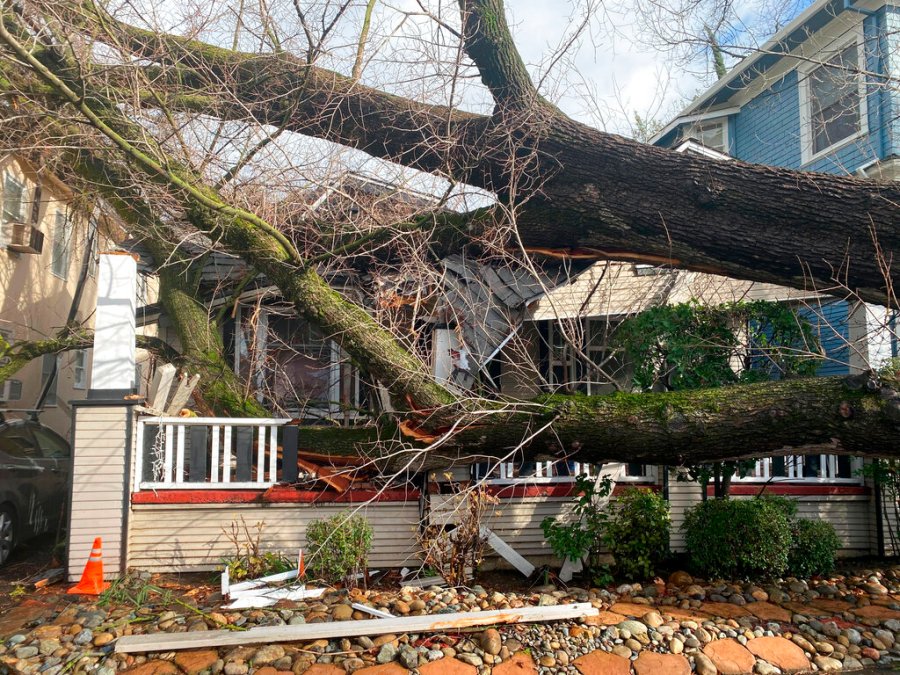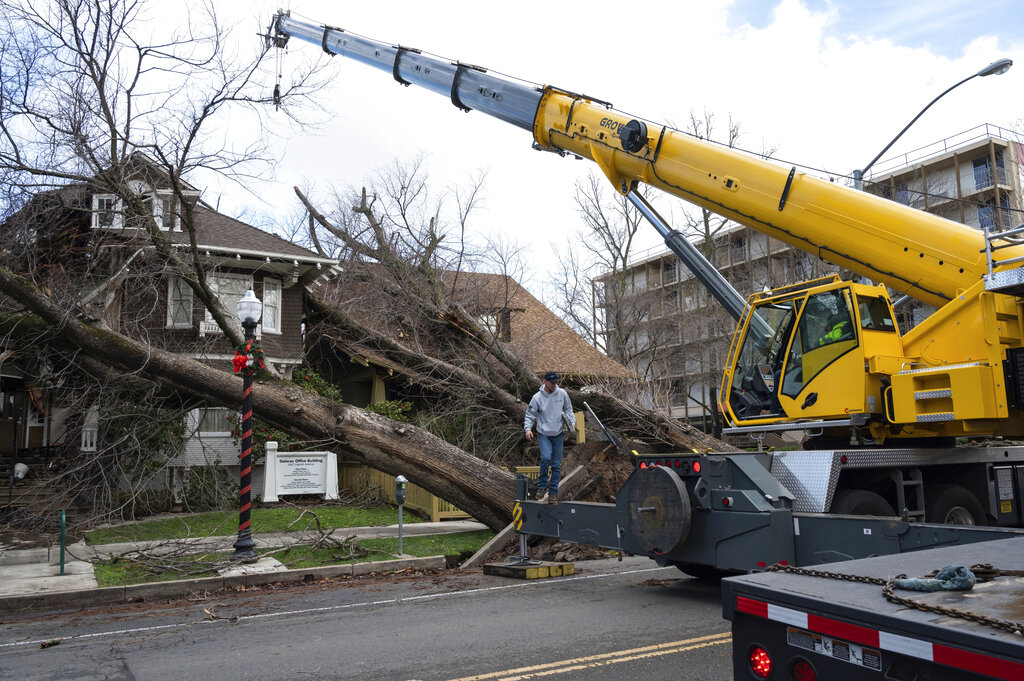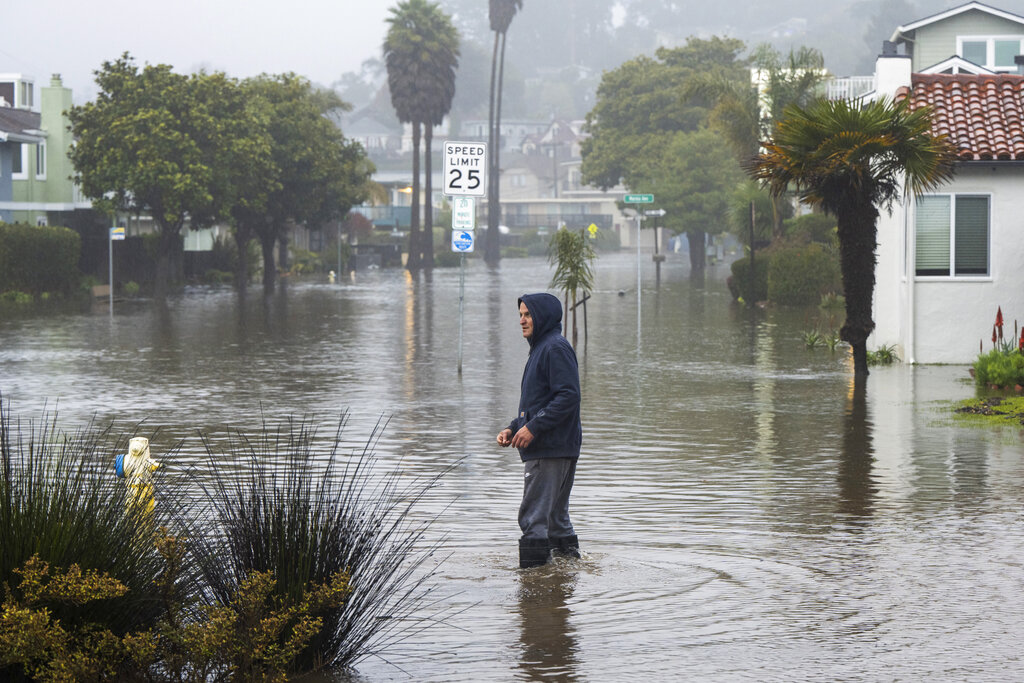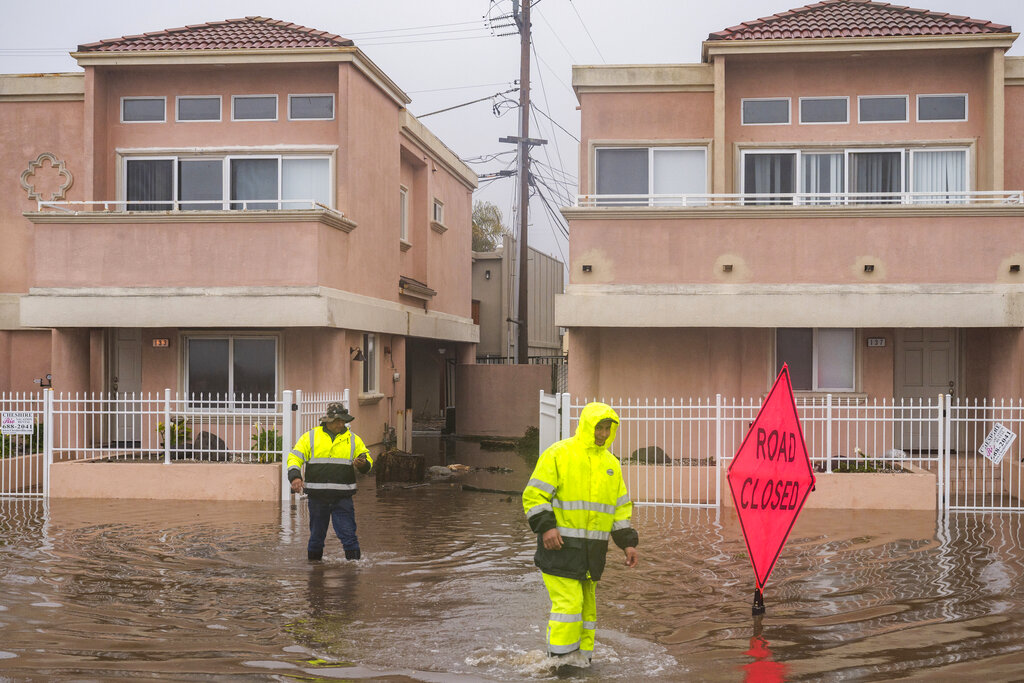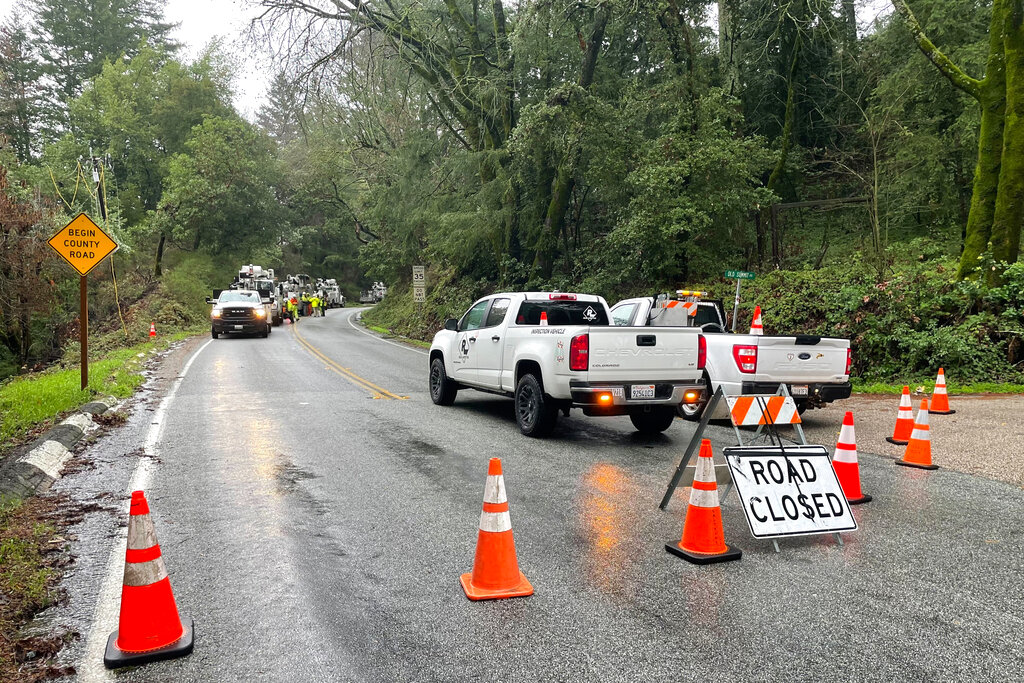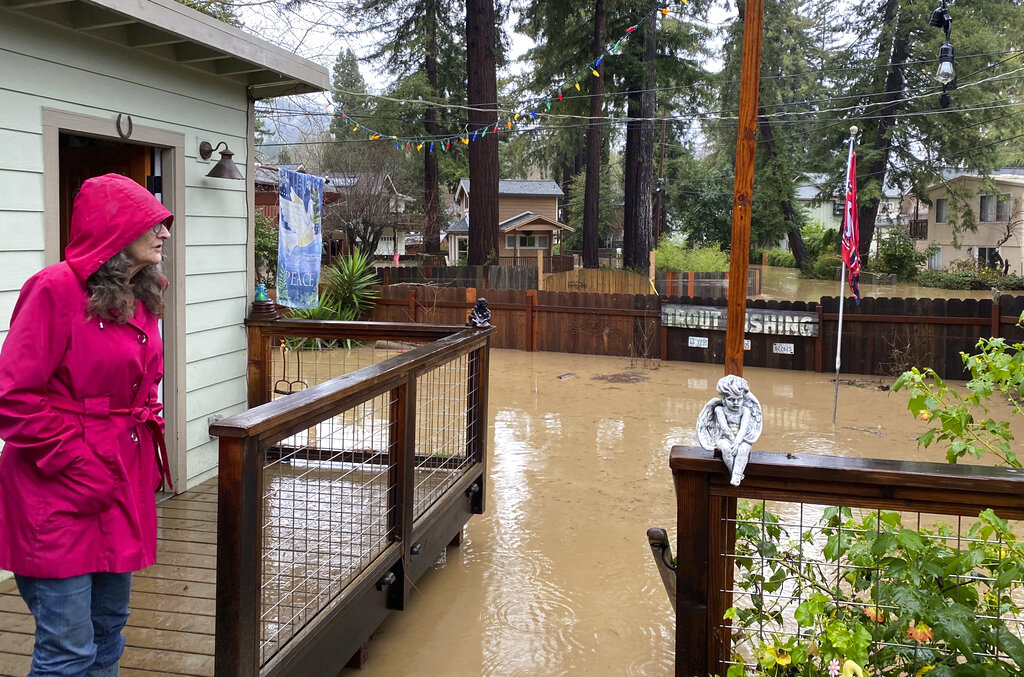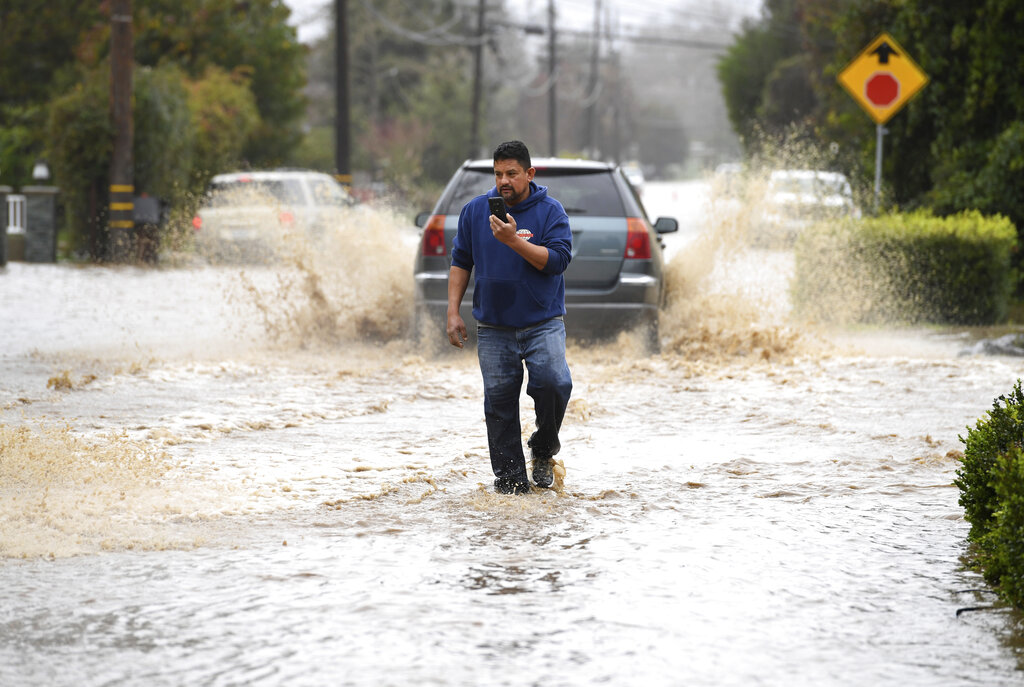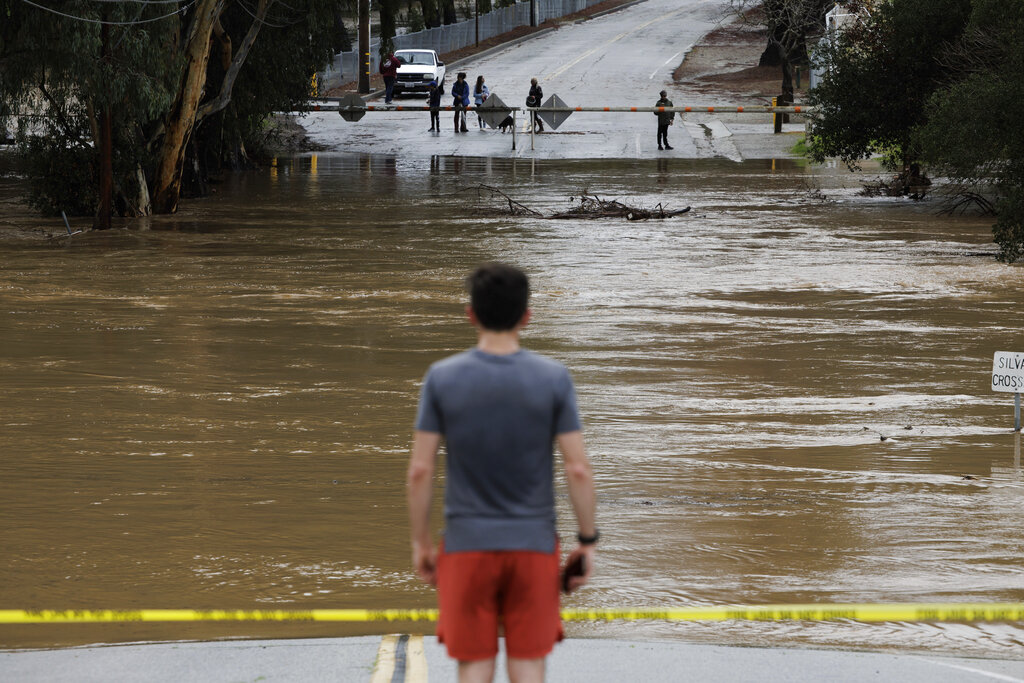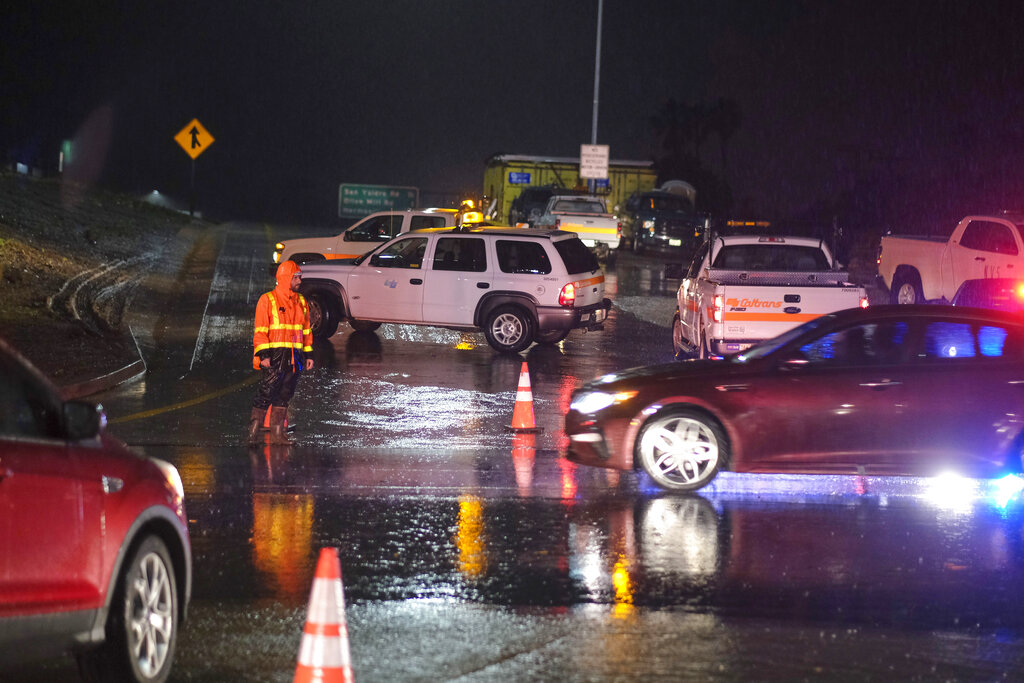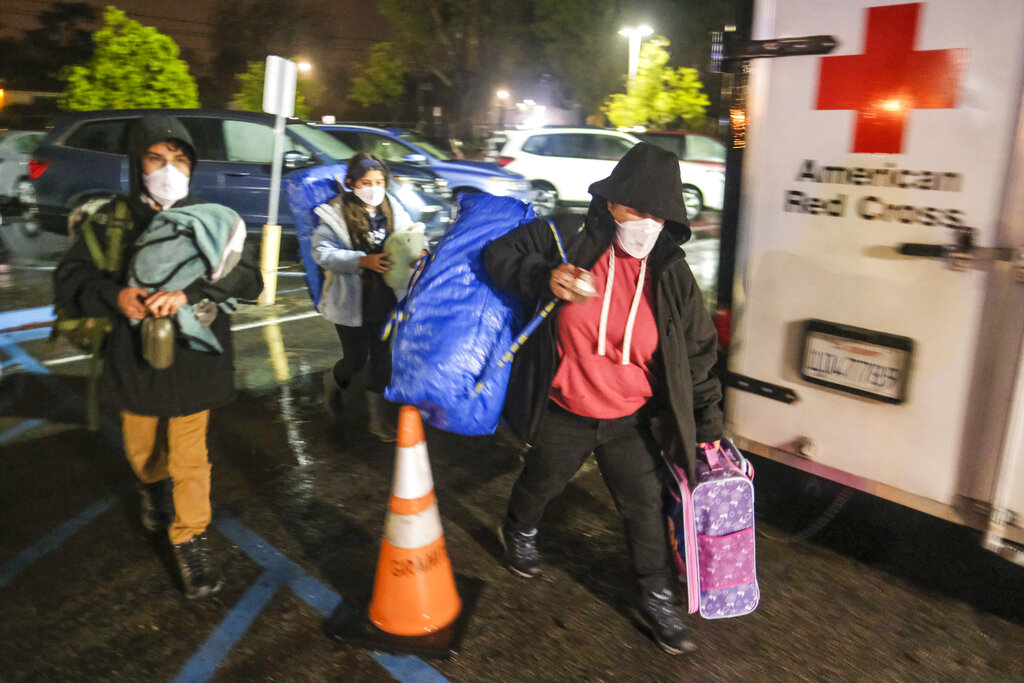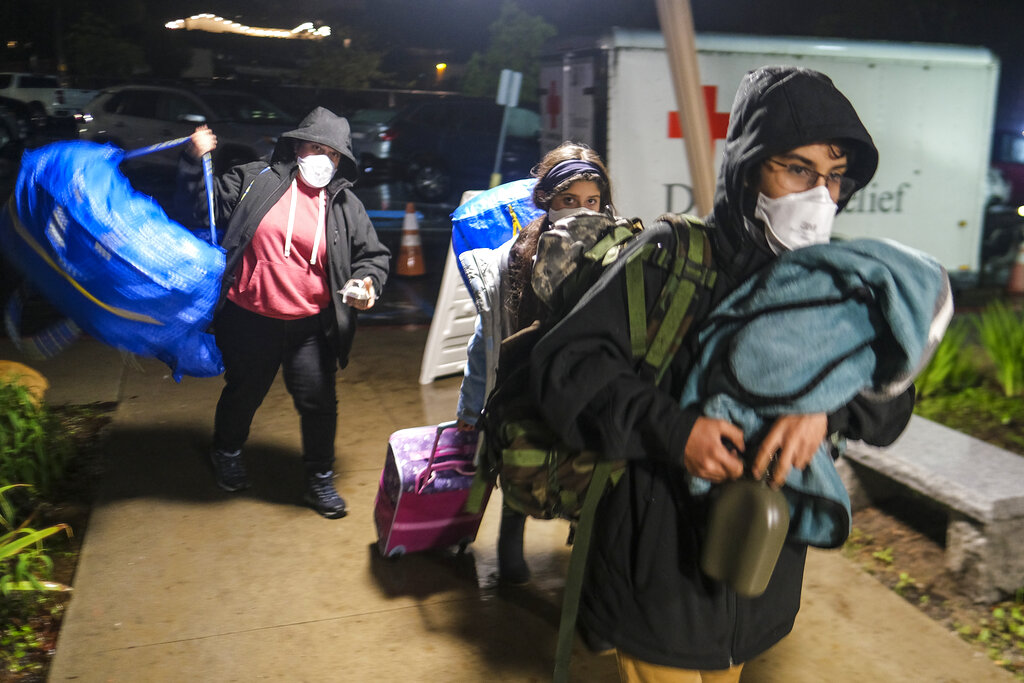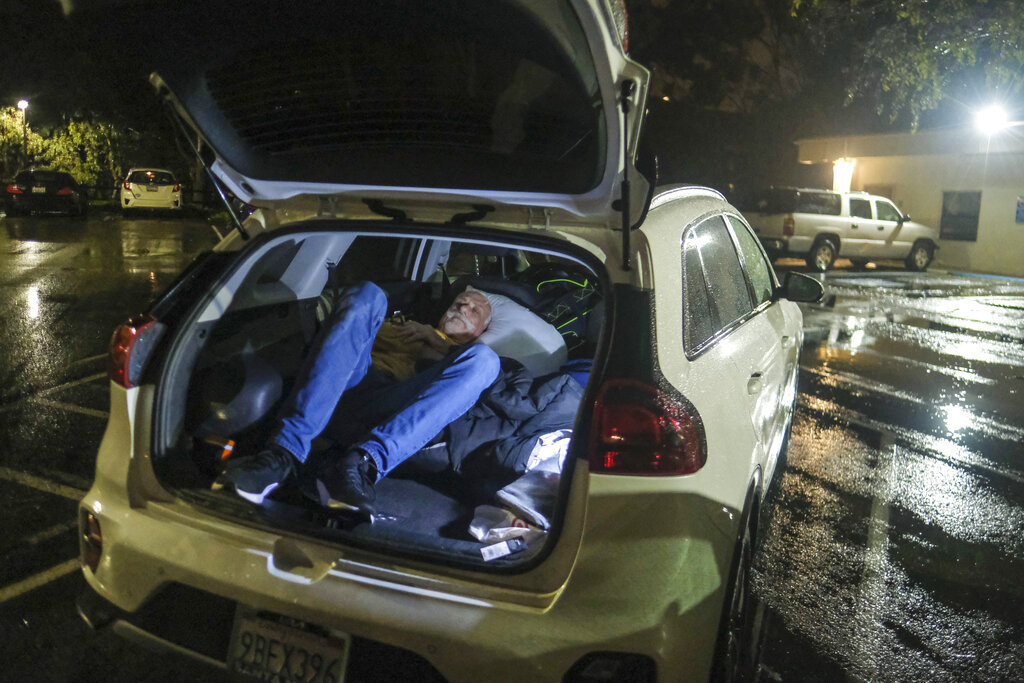Landslides, sinkholes, floodwaters plague soggy California
LOS ANGELES (AP) — Sinkholes swallowed cars, raging torrents swamped towns and swept away a small boy Tuesday as California was wracked by more wild winter while the next system in a powerful string of storms loomed on the horizon.
Millions of people were still under flood warnings, and more than 200,000 homes and businesses were without power because of heavy rains, hail and landslides. Thousands have been ordered to evacuate their homes.
At least 17 people have died from storms that began late last month, Gov. Gavin Newsom said during a visit to the scenic town of Capitola on the Santa Cruz coast that was hard hit by high surf and flooding creek waters last week. The deaths included a pickup truck driver and motorcyclist killed Tuesday morning when a eucalyptus tree fell on them on Highway 99 in the San Joaquin Valley near Visalia, the California Highway Patrol said.
“We’ve had less people die in the last two years of major wildfires in California than have died since New Year’s Day related to this weather,” Newsom said. “These conditions are serious and they’re deadly.”
The storm that began Monday dumped more than a foot (30 centimeters) of rain at higher elevations in central and Southern California and buried Sierra Nevada ski resorts in more than 5 feet (1.5 meters) of snow.
Rockfalls and landslides shut down roads, and gushing runoff turned sections of freeways into waterways. Swollen rivers swamped homes, and residents of small communities inundated with water and mud were stranded.
“We’re all stuck out here,” said Brian Briggs, after the deluge unleashed mudslides in remote Matilija Canyon that buried one house completely and cut off the only road to nearby Ojai.
Briggs described a scary night where the canyon creek began to flood people’s yards and the surrounding hills — stripped of vegetation in the 2017 Thomas Fire — began to tumble down in the dark.
Mudflows dragged sheds, gazebos and outhouses into the creek, he said. After helping neighbors get to higher ground, he returned home to find his fence destroyed by waist-deep mud.
A helicopter dropped 10 sheriff’s deputies Tuesday to help the residents.
Residents of the small agricultural community of Planada, which is along a main highway leading to Yosemite National Park, were ordered Tuesday to pack up and leave after Bear Creek overflowed and flooded some homes.
A break in the weather Tuesday on the central coast allowed searchers near San Miguel to look for Kyle Doan, the child who vanished after he and his mother were stranded in a truck in rising waters. His mother was rescued, but Kyle was swept away, and a seven-hour search Monday turned up only one of his Nike shoes.
“It’s still very dangerous out there,” said San Luis Obispo County sheriff’s spokesperson Tony Cipolla. “The creeks are very fast flowing.”
The wet and blustery weather left California’s large homeless population in a precarious situation. At least two homeless people in Sacramento County died, and more than a dozen people were rescued from a homeless encampment on the Ventura River.
Theo Harris, who has been living on the streets of San Francisco since getting out of jail in 2016, fortified his shelter with tarps and zip ties and took in his girlfriend after her tent flooded.
“The wind has been treacherous, but you just got to bundle up and make sure you stay dry,” Harris said. “Rain is part of life. It’s going to be sunny. It’s going to rain. I just got to strap my boots up and not give up.”
The storms have created what Newsom called a “weather whiplash,” swinging from an epic drought to the other extreme and arriving with a fury and frequency likely to create problems well into next week.
While most of the state remains in extreme or severe drought, according to the U.S. Drought Monitor, the state said the water content in the snowpack is more than double the average.
“It’s fair to say that what we’re seeing right now in California will certainly help to relieve some of the localized aspects of drought, but will not resolve the long-term drought challenges,” said Rick Spinrad, administrator of the National Oceanic and Atmospheric Administration.
The latest atmospheric river — a long plume of moisture stretching out into the Pacific that can drop staggering amounts of rain and snow — began easing in some areas. But more rain was forecast to arrive Wednesday in Northern California, and then a longer storm system was predicted to last from Friday until Jan. 17.
The weather service issued a flood watch through Tuesday for the entire San Francisco Bay Area, along with the Sacramento Valley and Monterey Bay. Areas hit by wildfires in recent years faced the possibility of mud and debris sliding down bare hillsides.
Gusts as high as 88 miles per hour (141 kilometers per hour) were recorded in the mountains north of Los Angeles, and rainfall was expected to reach up to half an inch (1.27 centimeters) per hour. Tornadoes that had been forecast never materialized.
In South San Francisco, high winds ripped part of the roof off a large apartment building.
The squalls and flooding have forced school cancellations in some communities and intermittently shut down sections of major roadways that have flooded or been blocked by trees, rocks and landslides.
Sinkholes swallowed up two cars on a Los Angeles street, trapping two motorists who were rescued, and damaged 15 homes in the rural Santa Barbara County community of Orcutt.
In the wealthy seaside community of Montecito, 80 miles (128 kilometers) northwest of Los Angeles, evacuation orders were lifted Tuesday for about 10,000 people, including Prince Harry, Oprah Winfrey and other celebrities. The community had been told to evacuate on the fifth anniversary of a mudslide that killed 23 people and destroyed more than 100 homes.
Associated Press journalists John Antczak and Stefanie Dazio in Los Angeles and Janie Har and Olga R. Rodriguez in San Francisco contributed to this report.










